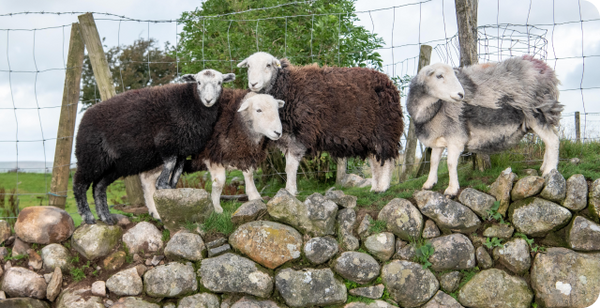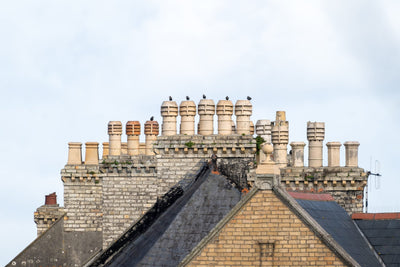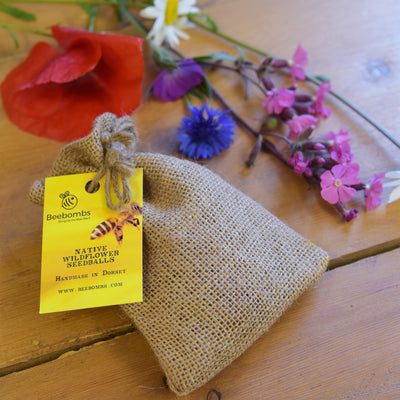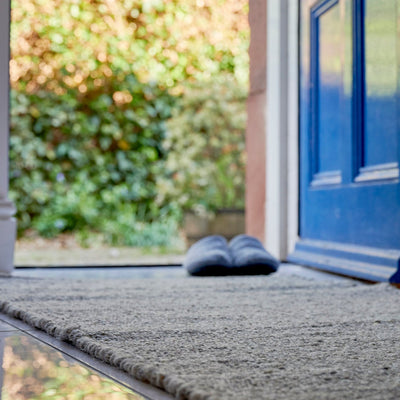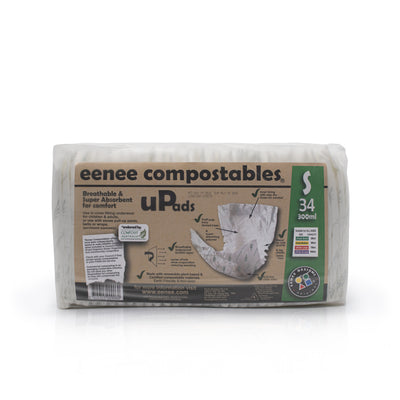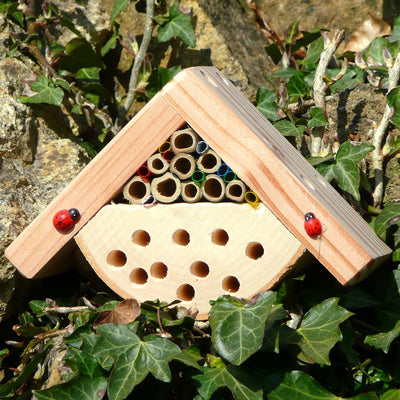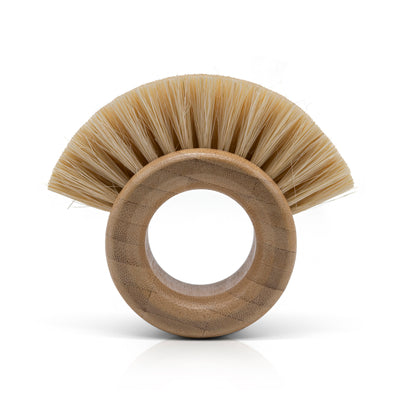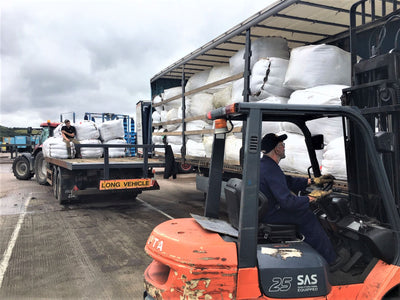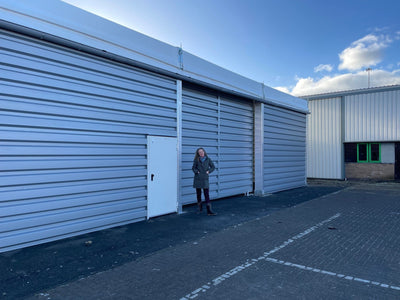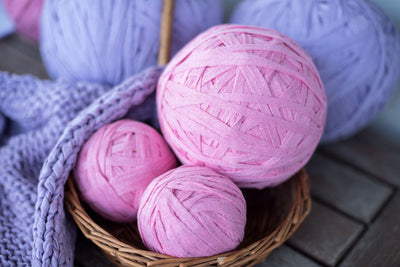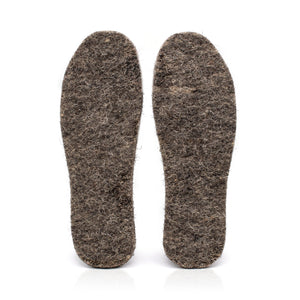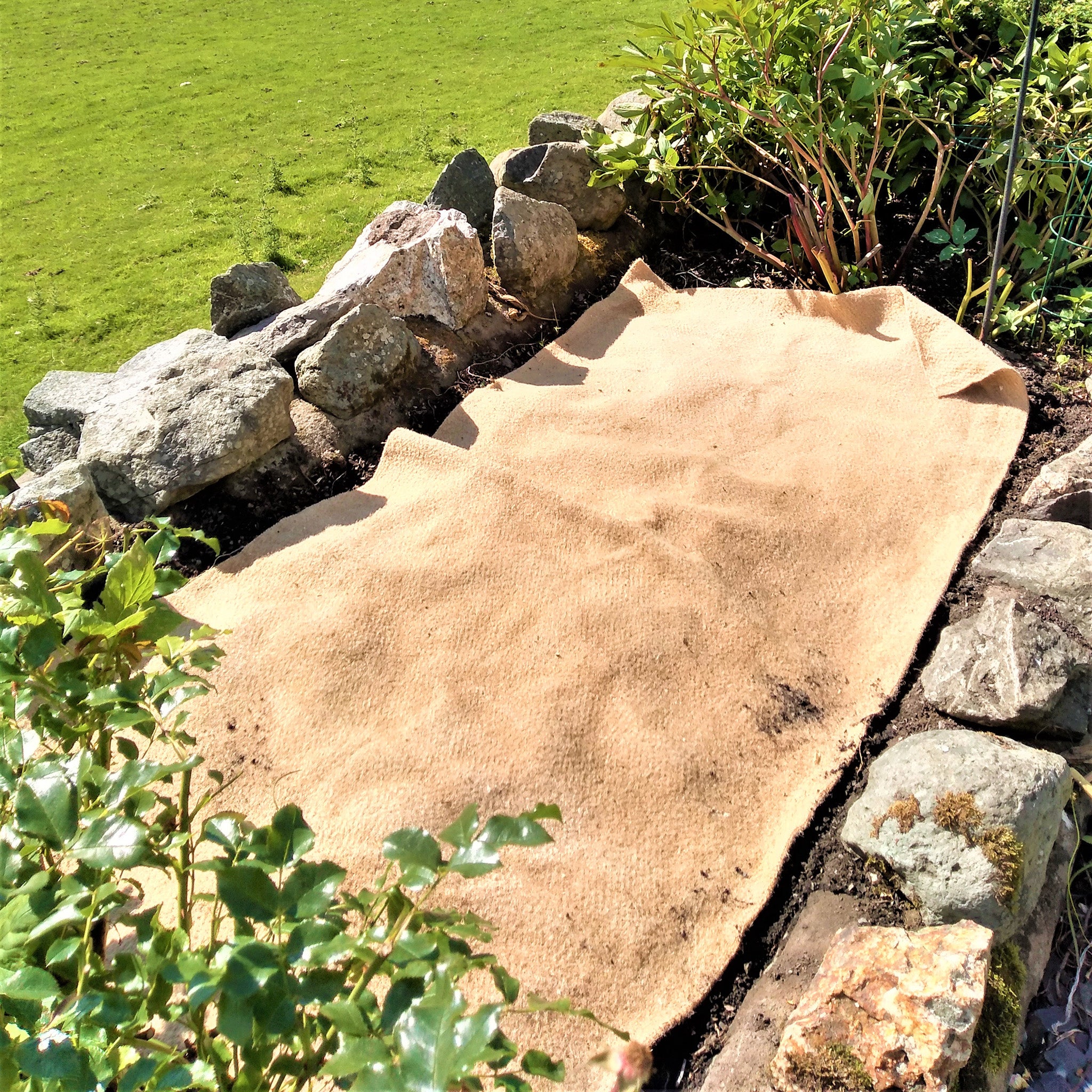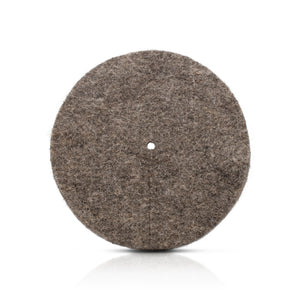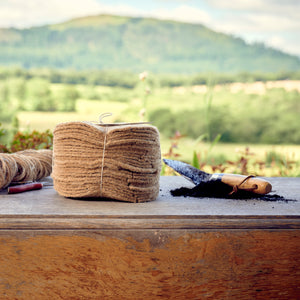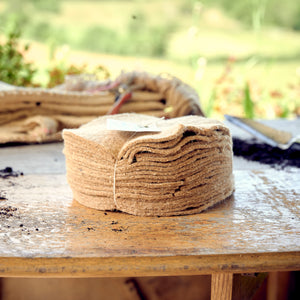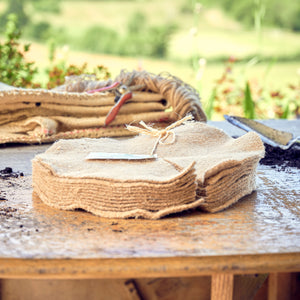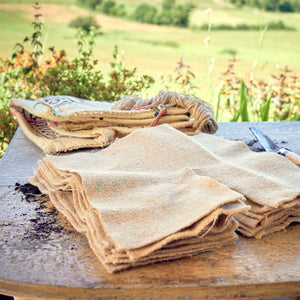What is mulch?
Mulch is defined as any material that is placed on the surface of cultivated soil, be that over beds, fields or over compost in individual pots. It could be something like this jute mulch roll, cardboard, straw, hay or bark chippings. It’s a technique that’s been around for millennia, but it seems to have fallen out of favour through modern farming methods.
However, mulch is definitely enjoying a come-back due to the increased need for sustainable agriculture and with gardening methods like ‘no-dig’.
What are the benefits of mulch?
The benefits of mulch are widespread, both for domestic gardeners and widescale horticulturalists, farmers and foresters. We have certainly noticed the benefits of mulch our gardens and in our Buy Land Plant Trees project.
Here are a few of the benefits of mulch:
-
Conserves water – mulch conserves water by reducing water evaporation from the soil. Mulch allows water to permeate through it into the soil below. However, the barrier the mulch forms between soil and the air reduces the amount of water that evaporates off the soil’s surface. Studies of mulch in draught-prone countries have demonstrated how the water-saving properties of mulch improve crop growth.
-
Naturally suppresses weeds – using mulch to cover soil and compost where plants or crops are growing creates a natural barrier against weeds. The weeds don’t have access to light, can’t photosynthesise, and therefore perish and eventually rot away into the ground.
-
Reduces competition for water and nutrients – by reducing the number of weeds it ensures that there is less competition for plants. This means they can access more water and nutrients, helping them to grow more effectively! When looking at this in an agricultural context, using mulch reduces the large-scale use of herbicides which is beneficial both to the wider environment and us.
-
Reduces temperature fluctuations – Mulch protects plant roots against temperature changes by acting as an insulator. They help to regulate soil temperature to keep plant roots cool in the summer and warm in the winter ensuring plants can continue to grow well. Our jute mulch roll is particularly good at this because of its density.
Why is Chimney Sheep’s Jute Mulch Roll a great mulch option?
-
Perfect for larger areas – our Jute Mulch Roll is perfect for mulching big beds and works particularly well in allotments and for hedge planting. Take a look at how Charles Dowding used a roll to grow some potatoes here.
-
Mulch for every plant – because each plant will get its own little bit of mulch all to themselves, the concentration of mulch per plant is much higher than having to share lots of mulch (like with straw or bark chippings) with other plants. The density of the roll also helps with this. If you are wanting to mulch individual plants or trees, then our mulch mats would work better!
-
Provides nutrients for the plants as they compost down – jute is a natural vegetable fibre so once it has composted down, it provides lots of nutrients to help plant growth.
-
Helping to deter greedy slugs and snails – while we can never promise that our mulch roll will completely deter slugs and snails, it does make it a lot harder for the greedy molluscs to gain access and devour precious plants.
-
No plastic – unlike the polypropylene versions, these our Jute Mulch Roll is completely plastic-free which means it will biodegrade and compost down completely, without leaving microplastics in the soil.
How can I use the Jute Mulch Roll for hedging?
Just roll it out along the length of where the hedge is to go, then cut holes through the fabric to plant the whips through. Simple as that! A roll will sit quite firmly on the ground but if you want to peg them down you can use our bamboo pegs which will also compost down.
Conventional hedging necessitates the use of herbicides to remove all weeds, then planting of the whips, usually with guards and stakes, then returning for re-treatment of herbicides to manage weed control. Using the jute weed control for hedging reduces this work and use of chemicals. The jute efficiently suppresses the weeds. The weed control fabric can be cut with a pair of sharp scissors or knife, puncturing holes in it through which the whips can be planted.
Once you’ve planted the hedging using the jute, you can just leave it! The jute will suppress weeds and remove the need to return and spray or strim. The jute lasts at least a year by which time the whips will be well established. It gradually biodegrades down to provide additional nutrients for the young trees. It also retains moisture thus reducing the need to water in dry conditions.
What is mulch?
Mulch is defined as any material that is placed on the surface of cultivated soil, be that over beds, fields or over compost in individual pots. It could be something like this jute mulch roll, cardboard, straw, hay or bark chippings. It’s a technique that’s been around for millennia, but it seems to have fallen out of favour through modern farming methods.
However, mulch is definitely enjoying a come-back due to the increased need for sustainable agriculture and with gardening methods like ‘no-dig’.
What are the benefits of mulch?
The benefits of mulch are widespread, both for domestic gardeners and widescale horticulturalists, farmers and foresters. We have certainly noticed the benefits of mulch our gardens and in our Buy Land Plant Trees project.
Here are a few of the benefits of mulch:
-
Conserves water – mulch conserves water by reducing water evaporation from the soil. Mulch allows water to permeate through it into the soil below. However, the barrier the mulch forms between soil and the air reduces the amount of water that evaporates off the soil’s surface. Studies of mulch in draught-prone countries have demonstrated how the water-saving properties of mulch improve crop growth.
-
Naturally suppresses weeds – using mulch to cover soil and compost where plants or crops are growing creates a natural barrier against weeds. The weeds don’t have access to light, can’t photosynthesise, and therefore perish and eventually rot away into the ground.
-
Reduces competition for water and nutrients – by reducing the number of weeds it ensures that there is less competition for plants. This means they can access more water and nutrients, helping them to grow more effectively! When looking at this in an agricultural context, using mulch reduces the large-scale use of herbicides which is beneficial both to the wider environment and us.
-
Reduces temperature fluctuations – Mulch protects plant roots against temperature changes by acting as an insulator. They help to regulate soil temperature to keep plant roots cool in the summer and warm in the winter ensuring plants can continue to grow well. Our jute mulch roll is particularly good at this because of its density.
Why is Chimney Sheep’s Jute Mulch Roll a great mulch option?
-
Perfect for larger areas – our Jute Mulch Roll is perfect for mulching big beds and works particularly well in allotments and for hedge planting. Take a look at how Charles Dowding used a roll to grow some potatoes here.
-
Mulch for every plant – because each plant will get its own little bit of mulch all to themselves, the concentration of mulch per plant is much higher than having to share lots of mulch (like with straw or bark chippings) with other plants. The density of the roll also helps with this. If you are wanting to mulch individual plants or trees, then our mulch mats would work better!
-
Provides nutrients for the plants as they compost down – jute is a natural vegetable fibre so once it has composted down, it provides lots of nutrients to help plant growth.
-
Helping to deter greedy slugs and snails – while we can never promise that our mulch roll will completely deter slugs and snails, it does make it a lot harder for the greedy molluscs to gain access and devour precious plants.
-
No plastic – unlike the polypropylene versions, these our Jute Mulch Roll is completely plastic-free which means it will biodegrade and compost down completely, without leaving microplastics in the soil.
How can I use the Jute Mulch Roll for hedging?
Just roll it out along the length of where the hedge is to go, then cut holes through the fabric to plant the whips through. Simple as that! A roll will sit quite firmly on the ground but if you want to peg them down you can use our bamboo pegs which will also compost down.
Conventional hedging necessitates the use of herbicides to remove all weeds, then planting of the whips, usually with guards and stakes, then returning for re-treatment of herbicides to manage weed control. Using the jute weed control for hedging reduces this work and use of chemicals. The jute efficiently suppresses the weeds. The weed control fabric can be cut with a pair of sharp scissors or knife, puncturing holes in it through which the whips can be planted.
Once you’ve planted the hedging using the jute, you can just leave it! The jute will suppress weeds and remove the need to return and spray or strim. The jute lasts at least a year by which time the whips will be well established. It gradually biodegrades down to provide additional nutrients for the young trees. It also retains moisture thus reducing the need to water in dry conditions.






